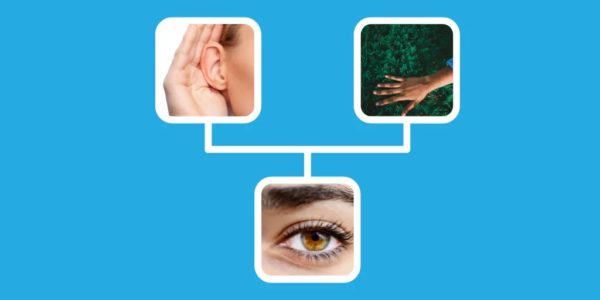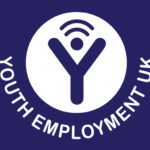You might have heard about learning styles. We’ve mentioned them many times. But do you know what the different learning styles are and which one suits you? If not, read on to find out!
What is a Learning Style?
In a nutshell, a learning style is how a person learns and absorbs information the best. We’re all different and have different abilities, so it makes sense that we don’t all learn in the same way.
For example, maybe your friend prefers to learn by reading, while you prefer to learn in a hands-on way. That’s an indication of different learning styles.
What is VAK?
VAK is an acronym that encompasses the three most common learning styles: Visual, Auditory, and Kinaesthetic (pronounced kin-ess-thet-ik.)
- VISUAL learners: learn by seeing
- AUDITORY learners: learn by hearing
- KINAESTHETIC learners: learn by moving
In the next section, we’ll break them down in more detail.
Visual Learning 101
Visual learning is all about sight. If you’re a visual learner, you take in information primarily by seeing it or by visualising (imagining) it in your mind’s eye.
People who learn best by reading are likely to be visual learners, because seeing the words on the page helps them take in the information. Visual learners are likely to be excellent spellers (able to “visualise” a word to spell it correctly) and are good at picturing scenarios or ideas in their heads. Skilled writers tend to be visual learners.
If you enjoy art and find joy in aesthetic beauty, you might also be a visual learner. Do you like maps, graphs, infographics, and other picture-based forms of information? Do you colour-code your notes, use flash-cards, or use learning aids like mind-mapping? All of these traits point to a visual learning style.
A challenge of visual learning is that these learners can be easily distracted. Do you often catch yourself staring out of a window, reading a whole chapter in a book when you only intended to look up one quote, or falling down an internet rabbit hole? You can mitigate this problem by eliminating distractions as far as possible while you’re studying or working. Close unnecessary browser windows, have the notes you need to hand, and sit facing a blank wall. You can also set timers (such as the Pomofocus timer) to keep yourself on-task and take scheduled breaks.
Auditory Learning 101
Just as visual learning is about sight, auditory learning is all about the sense of hearing. Auditory learners absorb information best by hearing it.
People who love receiving and following verbal instructions are likely to be auditory learners. Do you prefer a teacher or peer to talk you through a process rather than giving you written instructions? Do you like to talk through a problem to help you come to a solution? Are you sensitive to how people talk – their pitch, tone, inflection, and speech rhythms – as well as what they say? If this sounds like you, then you might be an auditory learner.
Auditory learners often struggle to take written notes and would prefer to record a lesson or lecture and listen back to it later. They are likely to be great at group work, deliver amazing presentations, and find it easy to explain concepts to others verbally.
Auditory learners might also enjoy studying or working with music playing in the background (as long as it is a type of music they do not find distracting – instrumental music without lyrics is popular.)
The main challenge of auditory learning is being highly distracted by auditory stimuli. Loud music, people talking near to you, or even traffic noise in the background can be extremely off-putting to this sort of learner. If this sounds like you, noise-cancelling headphones are your best friend!
Kinaesthetic Learning 101
Kinaesthetic learning is all about movement. If visual learning connects to sight and auditory learning connects to hearing, kinaesthetic learning is most closely associated with the sense of touch.
Kinaesthetic learners are people who learn by doing. They tend to be good with their hands, have a great sense of direction, and prefer to solve a problem by trying things out in a hands-on way. If you struggle with abstract concepts and prefer things to be presented in a concrete way, would rather someone show you something than tell you, or excel at practical tasks such as cooking, building, or engineering, you might be a kinaesthetic learner.
Many people who are good at sports or physical performing arts such as dance tend to be kinaesthetic learners.
A challenge many kinaesthetic learners face is that they can be restless or “fidgety.” This can be a problem in places like the classroom or workplace meetings, where fidgeting or doodling (another common trait of kinaesthetic learners) can be misinterpreted as a lack of concentration. If this sounds familiar, explain to your teacher or boss that you’re a kinaesthetic learner and that these restless actions actually help you concentrate. A small fidget toy might be a great tool for you.
Which One Are You?
Chances are that one of the above spoke to you more than the others. If so, that’s probably your primary learning style. In reality, most of us use some combination of learning styles. So if you recognised aspects of yourself in two
Learning styles are a tool, not a prescription. They are not designed to limit how you learn or put you into a box. Instead, they are designed to help you understand yourself better so that you can learn in the ways that suit you.
Has discovering your learning style helped you? We’d love to know which one resonates with you and any useful tips you can share with our readers!






